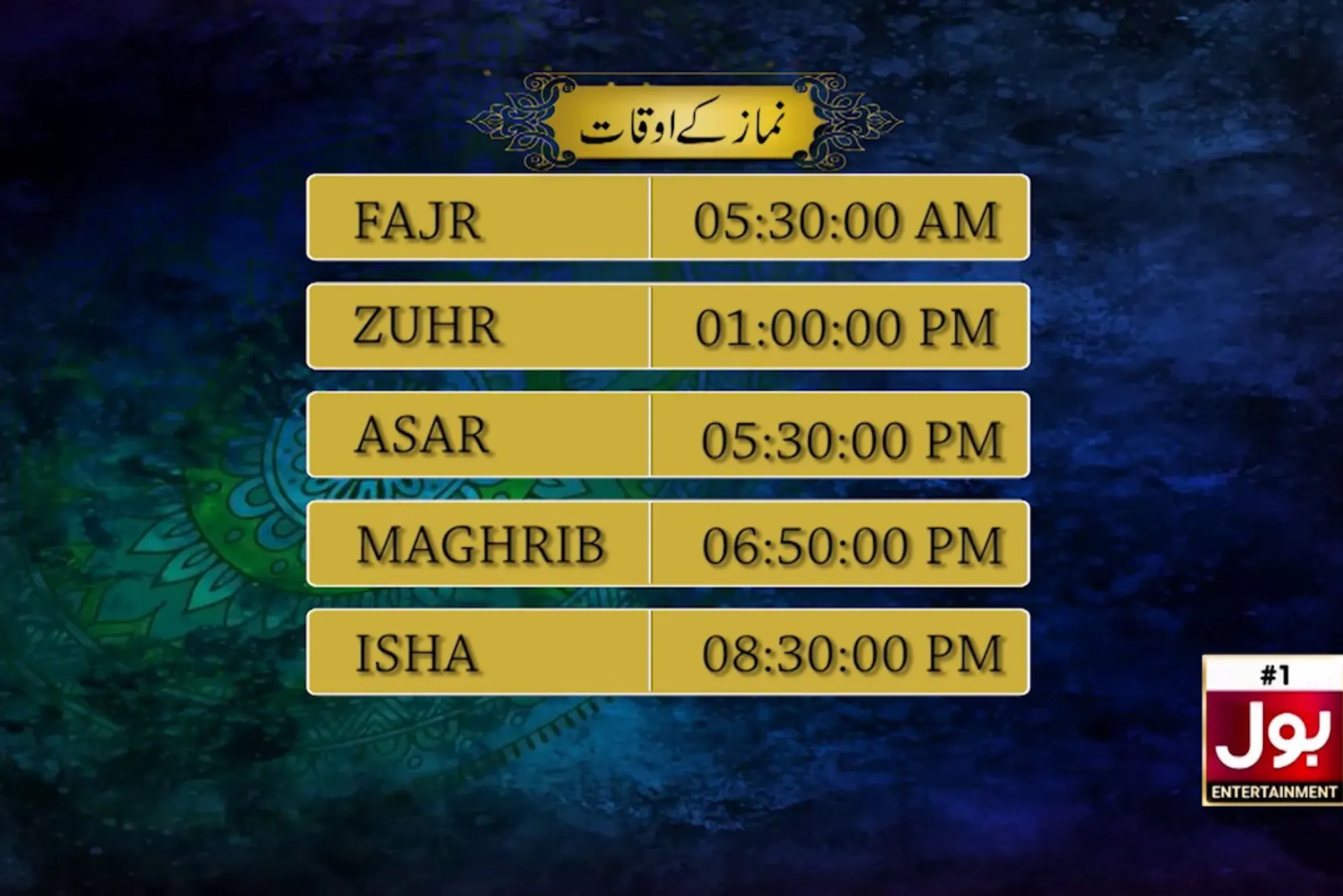In the daily life of a Muslim, prayer is an essential act of worship, serving as a spiritual connection with Allah. Among the five obligatory prayers, Fajr holds a special place. It marks the beginning of the day and is performed at dawn before sunrise. Understanding the precise timing of Fajr Namaz is crucial for devout Muslims to ensure they fulfill this religious obligation. This article will delve into the significance of Fajr Namaz, how its timing is determined, and provide you with Fajr Namaz time for tomorrow.
Significance of Fajr Namaz
Fajr Namaz, the first prayer of the day, is of immense importance in Islam. It serves several purposes:
Spiritual Renewal: Performing Fajr Namaz helps Muslims start their day with a fresh perspective. It instills a sense of calmness and encourages a mindful approach to daily activities.
Connection with Allah: Fajr Namaz is a time for Muslims to connect with Allah in a peaceful setting. The early morning hours are often quiet, providing an ideal environment for prayer and reflection.
Community Bonding: Attending Fajr prayers in congregation at the mosque fosters a sense of community. It brings together individuals who share common beliefs and values.
Adherence to Divine Command: Fajr Namaz is a mandatory prayer for Muslims, following the teachings of the Quran and the Sunnah of the Prophet Muhammad (peace be upon him). Observing it demonstrates faith and obedience to Allah.
Understanding Fajr Namaz Timing
Fajr Namaz is performed before the break of dawn. The timing of Fajr is determined by the appearance of the first light in the sky, known as “Subh Sadiq.” It is crucial to know the exact timing for Fajr to ensure that prayers are conducted within the permissible time frame.
The timing for Fajr Namaz varies based on geographical location and the time of year. Several methods and calculations are used to determine the prayer times, including:
Astronomical Calculations: This method uses the position of the sun relative to the earth to determine the timing for Fajr. Various Islamic organizations and mosques employ astronomers and mathematicians to provide accurate prayer timings based on geographical data.
Local Observation: Some communities rely on local observations of the sky to determine the break of dawn. This method can be subjective and varies by location, so it may not always provide the same results as astronomical calculations.
Islamic Calendar: The Islamic calendar, based on lunar cycles, also plays a role in determining prayer times. Each day is divided into segments that correspond to prayer times, including Fajr.
Fajr Namaz Time Tomorrow

To provide accurate information on Fajr Namaz time tomorrow, it is essential to consider your geographical location, as prayer times differ across cities and regions. For example, Fajr Namaz time in New York will differ from that in Dubai or London.
Let’s take a look at the Fajr Namaz times for a few major cities for tomorrow:
New York, USA: Fajr Namaz time is at 5:50 AM.
London, UK: Fajr Namaz time is at 5:30 AM.
Dubai, UAE: Fajr Namaz time is at 5:12 AM.
Kuala Lumpur, Malaysia: Fajr Namaz time is at 6:01 AM.
(These times are for illustrative purposes. Please refer to local Islamic authorities or prayer time apps for precise timings in your area.)
How to Find Accurate Prayer Times
There are several ways to find accurate Fajr Namaz timings in your area:
Islamic Apps: Numerous mobile applications are available that provide prayer times based on your location. Apps like Muslim Pro and IslamicFinder are popular choices.
Mosque Websites: Most mosques maintain updated prayer time schedules on their websites. Check your local mosque’s site for accurate timings.
Community Boards: Many Islamic centers and community boards post prayer times in common areas for public reference.
Islamic Calendars: Printed Islamic calendars often include daily prayer times. These can be found at mosques, Islamic bookstores, or online.
Local Scholars: Seeking advice from local scholars or knowledgeable community members can provide clarity on Fajr Namaz timings.
Importance of Fajr Namaz in Daily Routine
Integrating Fajr Namaz into your daily routine offers numerous benefits, both spiritually and practically.
Establishing Discipline: Waking up early for Fajr cultivates discipline and helps in setting a productive tone for the rest of the day.
Time for Reflection: The moments spent in prayer allow for personal reflection and gratitude, promoting mental and emotional well-being.
Productivity: Many Muslims report increased productivity after performing Fajr, as the early morning hours are often quieter and less distracting.
Time Management: Incorporating Fajr into your schedule helps with time management, as it encourages planning and organization throughout the day.
Challenges in Observing Fajr Namaz
Despite its significance, some Muslims may face challenges in observing Fajr Namaz, especially in regions with varying day lengths.
Work Commitments: Many individuals have early work schedules that can interfere with their ability to perform Fajr Namaz.
Social Activities: Social gatherings and activities can lead to late nights, making it difficult to wake up for early prayers.
Sleep Disorders: Individuals with sleep disorders or irregular sleep patterns may struggle to wake up for Fajr.
To overcome these challenges, establishing a regular sleep schedule, seeking support from family or friends, and using alarms specifically for Fajr Namaz can be beneficial.
Fajr Namaz holds a significant position in the life of a Muslim. Understanding its timing and the importance of performing it daily can lead to a more fulfilling spiritual life. By knowing Fajr Namaz time tomorrow and the methods to find accurate prayer timings, individuals can better incorporate this essential act of worship into their daily routines.







